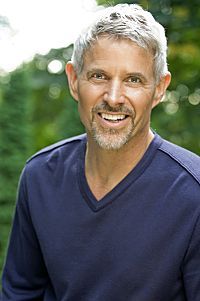9 Reasons For Physican Burnout, And One Way To Avoid It
 "The burnout epidemic amongst our physicians is a predictable result of the medical training and the generally accepted definition of “success” amongst doctors."
"The burnout epidemic amongst our physicians is a predictable result of the medical training and the generally accepted definition of “success” amongst doctors."
-Dr. Dike Drummond MD Founder of TheHappyMD.com
Dr. Dike Drummond is a Mayo trained Family Practice Physician who has experience in medicine, coaching and personal improvement, and business development. His expertise in personal change was developed over 15 years as a family practice doctor and 8 years as a business coach working with physicians and startup entrepreneurs.
When I met Dr. Drummond, we discussed the reasons why so many physicians get burned out. He asked me how most doctors measure success? “Do they have a busy practice?” The answer popped out of my mouth instantly; it was almost a reflex. This is something you hear all the time. “She is doing well, working in a busy practice,” or “his surgery schedule is booked solid; he must be doing great.” This seems to make sense; after all, we are doctors, and doctors are busy. However using this one tool as your main metric of success can become a recipe for disaster. Unfortunately, this is not the only reason physicians get burned out, but the good news is, there is a solution.
Enter Dike Drummond
What follows are 9 facts about the practice of medicine that lead directly to burnout. The good news is you can do something about it.
1) Being a Doctor is Stressful. Period
The "most stressful" professions are those characterized as having a high level of responsibility and little control over the outcome. We are not selling widgets in medicine. This is a tough job that saps our energy every single day.
2) We Work with Physically and Emotionally Sick People All Day Long
Our days are filled with intense encounters. We spend our time treating sick, scared, and hurting people. In addition to the physical ailments, there are many emotional needs that come with any illness. Physicians do not receive proper training on creating boundaries; our energy can be severely tapped by these emotional needs alone.
3) Balance, What Balance?
Medicine has a powerful tendency to become the “career that ate my brain." Pushing all other life priorities to the side is something that we have ingrained into us during medical school and residency. As we get older, with more family responsibilities, the tension between work and our larger life is a major stressor for many. Training on healthy boundaries would help here too and is rarely available.
4) A Leadership Role with no Leadership Skills
You graduate into the position as leader of a healthcare delivery team without receiving any formal leadership skills training. By default we learn a dysfunctional "Top Down" leadership style. (Medicine and the military are the only professions where the leaders "give orders.") This adds additional stress.
5) The Doctor is the Bottleneck
The team can only go as fast as we can, and we are often behind schedule. Pressure mounts to perform at full steam all day long.
6) Who's Paying for This?
The financial incentives are confusing at best. The patient is often not the one paying for our services, and many of them receive their care with no personal investment on their part. You may have to deal with over a dozen health plans with different formularies and referral and authorization procedures ... of which the patient is blissfully unaware.
7) Medical Practice is A Lawsuit Waiting to Happen
The hostile legal environment causes many of us to see each patient as a potential lawsuit. This fear factor adds to the stress of all the points above.
8) Politics and "Reform" Political debate drives uncertainty about what our careers will look and feel like in the future.
All the pundits share the same complete lack of understanding about our day to day experience as providers in the trenches of patient care. There is no track record of common sense. We simply don’t know what to expect.
9) Things Eventually Get Stale
The ten year threshold when your practice suddenly seems to become much more of a "mindless routine" losing its ability to stimulate your creative juices each week is a shock. All of a sudden it seems as if medicine is “no fun any more."
The Solution
Keep your connection to "WHY" we are a doctors; to your Purpose.
The quality of this connection varies day-by-day; however, it is a source of immense power and endurance when the connection is clear. As physicians, we must deliberately work to keep that connection alive and well. When you have invested over a decade of your life in medical training, it's easy to feel stuck when you think your reason for becoming a doctor is gone or not possible. It's imporant to remember you have a great skill, with more opportunities than you probably know. Keep searching out and pursuing the opportunities that ignite your passion, and do not be afraid to ask for help. Sometimes another perspective can open your eyes to opportunities you did not choose to consider.
When you notice the three cardinal signs of Burnout
1) Exhaustion
2) Cynicism (especially in men)
3) Questioning the quality of your work or whether you make a difference in the world.
(Sounds like medical school and residency)
It's time for a break, some balance, to take really good care of yourself, spend some time with your family and even ask for support. You’ve earned it.
To learn more from Dike Drummond visit The Happy MD


 Yo! Post a Comment
Yo! Post a Comment

Comments